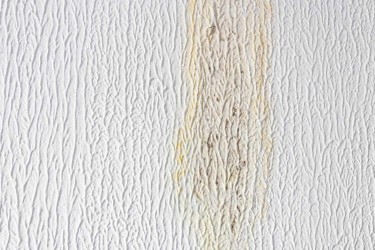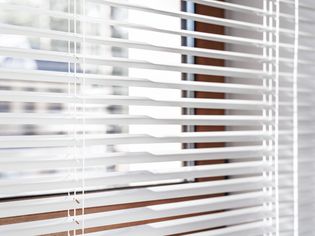What Happens to Your Home in the Humidity? 6 Major Issues You Should Watch For
Not only is high humidity uncomfortable for you, it can actually cause serious damage to your home. Especially in the dog days of summer and long bouts of rainfall, humidity levels have been rising at an alarming level.
Read on to see what humidity does to your home and how you can combat it swiftly!

The Spruce / Sanja Kostic
Mold growth
When your home gets damp due to humidity, unfortunately, mold can grow rampant. Mold can grow in and penetrate walls but can also grow on soft surfaces like pillows or rugs in areas with poor ventilation.
Mold can cause health problems like asthma or allergies, so it's important to tackle this problem right away.
Want more home reno project tips and inspiration? Sign up for our free daily newsletter for the latest how-tos, reno guides, and more!
Peeling Wallpaper and Paint
When humidity isn't controlled, it creates a breeding ground anywhere where there is excess condensation. this can cause your wallpaper and paint to start curling or peeling away.
Covering it up won't fix the problem, so a fresh coat of paint or a new layer of wallpaper won't cut it when it comes to humidity.
Rotting Furniture and Decor
Another unfortunate sign that your home has high levels of humidity is decaying furniture, especially wood. It can even cause damage to your floorboards (especially if they are wooden), and window frames too.
Structural Damage
High humidity can absolutely damage structural damage within your home like your walls, drywall, and yes, even concrete.
Surprisingly, humidity can also damage metal components like your support beams.

PhotoAlto/Frederic Cirou / Getty Images
Causing Structural Beams and Studs to Contract
Humidity makes your home's structural beams to swell and contract. This leads to walls cracking and causing even more moisture to seep into your house.
Sagging Floors
Yes, sagging floors are another sign your house is way too humid. Especially if your floors are wooden, they can sag as well as crack, which isn't exactly safe for you or your family.
How to Help Your Home Become Less Humid
First, dehumidifiers do exactly as what their name says. These machines are very effective at decreasing humidity levels in your home. They are particularly useful in places where your home collects more moisture, so your basement and bathrooms.
Secondly, using exhaust fans while you're using a lot of water (think: bathing and cooking) can decrease the amount of humidity in your home.
While this tip may seem almost too simple, it's quite effective and doesn't cost anything. Opening windows can swiftly decrease humidity. The fresh air will help absorb any excess moisture.
It's easy to use too much water in excess, so it's best to limit this as much as possible. As much as it's an annoyance it's important to try to take shorter showers (and cooler ones too).
Lastly, you can install indoor air quality monitors to alert you if there's anything to be concerned about in your home. These monitors have humidity sensors that will give you peace of mind right away.
RECOMMENDED NEWS

Turn Rugs Into Artwork
Have an heirloom rug that you want to display, but don’t want to wear out? Maybe you picked up a pr...

5 Things Designers Wish They Could Say to Their Clients (But Never Will)
Key Points Involve a designer early to ensure smooth planning and a well-executed vision.Set clear p...

I’ve Been Thrifting for Years—These Are the 6 Home Decor Gems I Never Skip
Key Points Repurpose thrifted items like crystal ashtrays and vintage glassware for style and functi...

30 Breakfast Nook Ideas for an Inviting Space
These breakfast nook ideas will give you a charming and practical place for the whole family to sit...

Open Floor Plans Are Over—Why Designers Hate Using This Layout in Their Projects
Open floor plans, majorly in style at the beginning of the 21st century, have started to fall out o...

The Easiest Way to Remove Every Type of Blinds Without Damaging Your Window Frame
Removing blinds can be tricky. Whether you're removing them to replace them with new window treatme...
Comments on "What Happens to Your Home in the Humidity? 6 Major Issues You Should Watch For" :